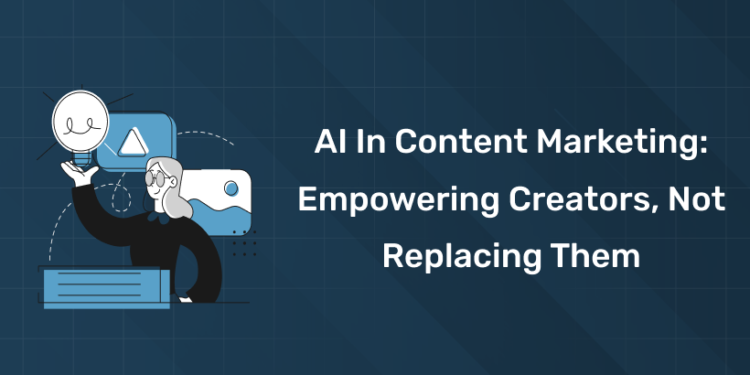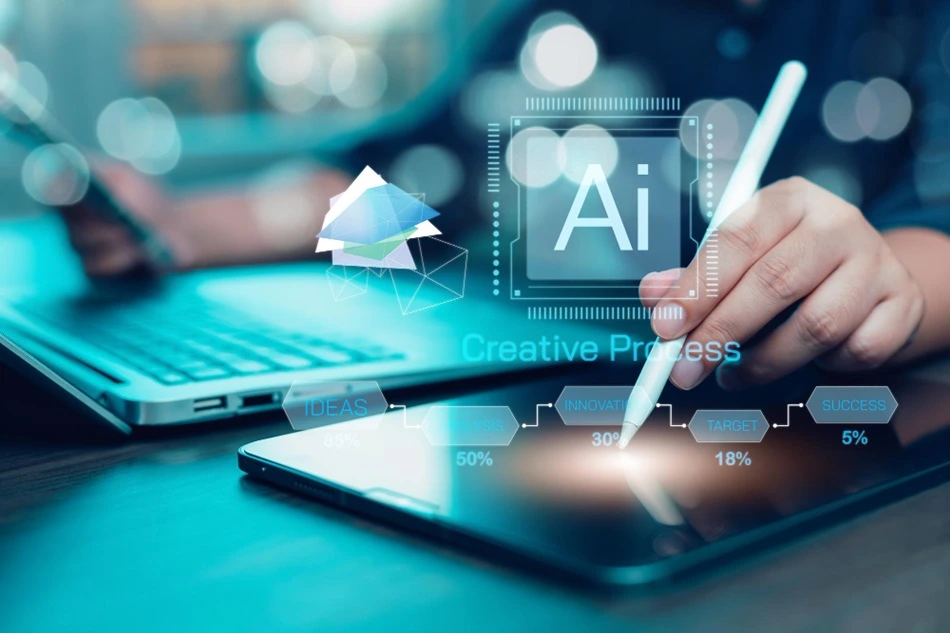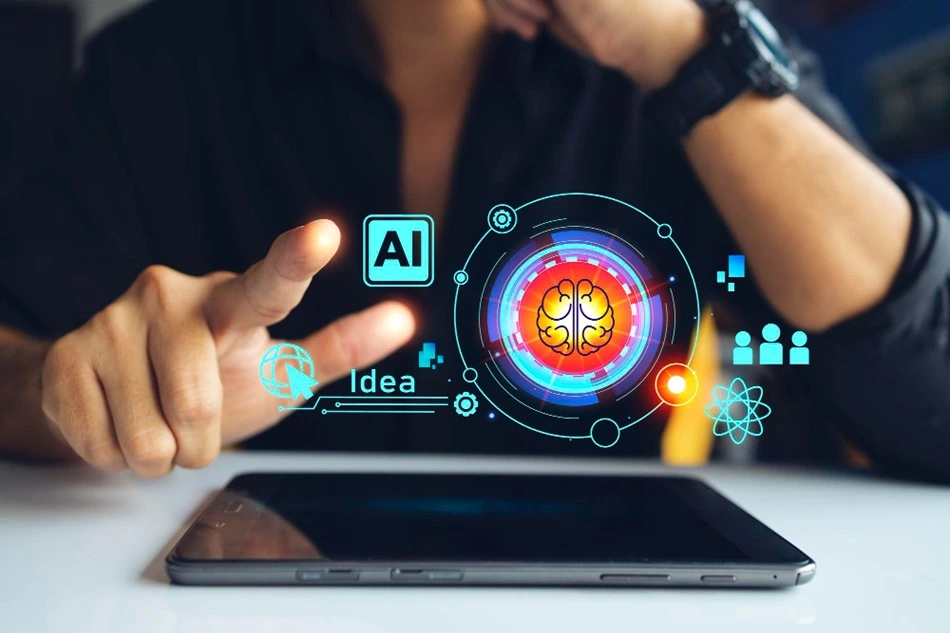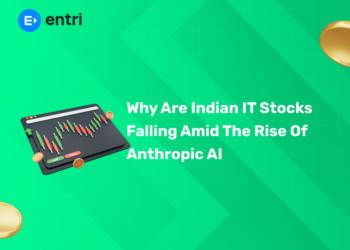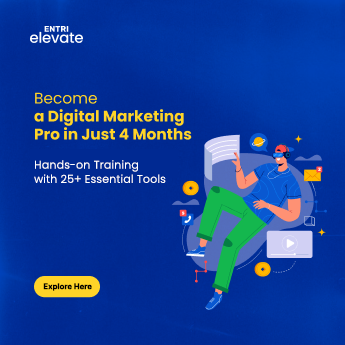Table of Contents
Content marketing has become a vital part of every business’s digital strategy. Whether it’s building brand awareness, engaging audiences, or driving conversions, high-quality content is key. Yet, the sheer volume and constant demand for fresh, relevant material mean marketers are increasingly turning to Artificial Intelligence (AI) to streamline, personalize, and supercharge their content efforts. Here’s how AI is redefining content marketing for 2025 and beyond.
Key Takeaways:
- AI is a supportive tool, not a replacement: The most powerful content strategies combine AI’s speed and data analysis with human creativity, empathy, and strategic thinking.
- The future is human-AI collaboration: Successful marketers use AI for tasks like data analysis, topic ideation, keyword research, drafting, optimization, personalization, and real-time analytics, while humans refine messaging, add emotional intelligence, and create brand authenticity.
- AI enhances efficiency and personalization: AI tools automate labor-intensive tasks, personalize messaging at scale, and optimize content timing and distribution, increasing results and saving time.
- Human touch remains vital: Audiences crave authentic, emotionally engaging, and experience-based content. Only humans can provide context, storytelling, and real trust.
- Quality and trust matter: Tools like Grammarly and Copyscape ensure accuracy and originality, but true E-E-A-T (Expertise, Experience, Authority, Trustworthiness) comes from human expertise.
- Getting started with AI: Start small, keep learning, experiment with new tools, measure outcomes, and focus on how AI can free up time for more strategic, creative work.
What AI Really Means for Content Marketing
Beyond the Hype
When we talk about AI in content marketing, we’re not talking about robot overlords writing your blog posts. We’re talking about intelligent systems that can:
- Analyze massive datasets to see what content works for your specific audience.
- Generate first drafts that human writers can refine and edit.
- Optimize content timing for maximum reach and engagement.
- Personalize messaging at scale across thousands of customer touchpoints.
- Predict content trends before they go mainstream.
The Human-AI Partnership Model
The most successful content marketers aren’t replacing their teams with AI; they’re creating powerful human-AI partnerships. Here’s how this works:
AI does the heavy lifting: Data analysis, research, content idea generation, basic draft creation
Humans add the magic: Strategic thinking, brand voice, emotional intelligence, creative refinement
This partnership is producing content that’s faster to create and more effective at driving results.
Why AI Has Become So Popular in Content Marketing
1: What is the primary goal of SEO (Search Engine Optimization)?
AI-powered tools like ChatGPT, Jasper, Grammarly, and Clearscope are changing how content is created, optimized and distributed. Brands are using AI to:
- Generate topic ideas based on real-time trends
- Automate SEO keyword research and clustering
- Create data-driven outlines and first drafts
- Analyze audience engagement and suggest improvements
The appeal is speed, scalability, and efficiency. According to a HubSpot report, 53% of marketers are already using AI tools for content generation, especially for brainstorming, rewriting, and performance tracking.
But here’s the reality: AI lacks creativity, empathy, and context, all the things that make content meaningful, persuasive and trustworthy.
Become an AI-powered Digital Marketing Expert
Master AI-Driven Digital Marketing: Learn Core Skills and Tools to Lead the Industry!
Explore CourseThe Human Touch Is Unreplaceable
While AI can mimic tone and structure, it can’t replicate lived experience, storytelling nuance or strategic thinking. Audiences want authenticity and brands that connect emotionally win more trust and loyalty. That’s why human content creators are at the heart of great digital communication. A product review, personal essay or case study. These formats require human emotion, judgment and first-hand experience. No matter how advanced the algorithm, it can’t replicate human depth.
How AI Can Support, Not Replace, Content Creators?
Digital marketers and content marketers should embrace AI not as an adversary but as a partner. It’s by doing this that you can.
1. Deepening insights
AI can review massive datasets, detect content holes, and reveal hot topics in mere seconds. This gives writers less research and more strong stories.
2. Keyword Optimisation
AI tools such as Semrush, SurferSEO, and Clearscope utilize real-time SERP analysis to inform on keyword usage, content structure, and readability. When paired with human intuition, they assist in optimising content for both search engines and readers.
3. Content Inspiration
Brainstorming can deadlock even the most creative minds. AI can recommend headlines, blog topics, and search intent-aligned FAQs, helping marketers push through creative blocks.
4. Once-Draft Help
AI-generated outlines or rough drafts can kickstart the writing process. Creators can then polish tone, introduce nuance, and inject brand voice, turning it unique and premium.
5. Performance Review
AI-based analytics tools assist content teams to figure out what’s working by monitoring engagement, scroll depth, time on page, and conversion metrics. These insights inform smarter editorial decisions.
Leveraging AI to Back a Content Campaign
Just a couple of weeks ago, a Kochi fashion retailer used AI to launch its summer campaign.
AI helped: Cluster keywords around 12 essential blog articles
Make data-driven headlines from click-through
Recommend the best publishing times according to audience activity
The human content team then comes in to build stories around summer trends, customer experiences, and sustainable fashion. The Result?
Almost 28% boost in organic traffic and almost a 12% increase in average session time, all while preserving the brand’s voice.
Learn Digital Marketing Fundamentals! Get Free Demo Here!
Become an AI-powered Digital Marketing Expert
Master AI-Driven Digital Marketing: Learn Core Skills and Tools to Lead the Industry!
Explore CourseHow Does AI Enhance Content Quality and Trustworthiness?
High-quality content builds credibility and drives conversions. AI tools like Grammarly, ProWritingAid, and Copyscape ensure content is polished, original, and trustworthy, aligning with E-E-A-T standards.
Quality-Enhancing Tools:
-
Grammar and Style: Grammarly refines grammar, suggests synonyms, and adjusts tone for B2C audiences, ensuring a friendly yet professional voice.
-
Sentence Flow: ProWritingAid improves readability, making complex topics accessible to customers.
-
Originality Verification: Copyscape checks for plagiarism, safeguarding SEO rankings and brand reputation.
How AI is Changing Content Creation
One of the coolest things about AI in content marketing is content automation. While AI generated content was once seen as basic and robotic, technology has advanced and now we have more human like content creation. Here’s how AI is changing content creation:
a. Content Generation and Copywriting
AI tools like GPT-3 and other machine learning models can help with writing blog posts, product descriptions, social media captions and more. These tools use NLP to analyze existing content and generate articles that are grammatically correct, coherent and engaging. In fact AI can create content in various styles and tones based on your preferences or target audience.
For example Jasper (formerly Jarvis) an AI writing assistant is used to generate long form content and blog posts and speed up the content creation process.
b. Personalization at Scale
Personalization is key to creating content that resonates with your audience. AI can analyze user data and behavior to create personalized content for specific segments. Whether it’s tailored email newsletters, dynamic website content or product recommendations AI can deliver a more personalized experience to your audience which can lead to higher engagement and conversions.
c. Automated Video and Image Creation
With the rise of video and visual content AI tools like Lumen5 and Designhill are changing the way marketers create multimedia content. These tools use AI to automatically generate videos and graphics from text based content saving time and resources while maintaining quality.
AI in Content Strategy and Planning
AI is not just a tool for content creation it’s also playing a big role in content strategy and planning. Here’s how AI is changing these areas:
a. Content Ideation and Topic Research
Finding the right topics to write about can be time consuming but AI can help with that. Tools like BuzzSumo and AnswerThePublic use AI to analyze search data, social media trends and industry insights to find topics that are trending and relevant to your audience. This helps content marketers come up with ideas that will perform well in search engines and social media.
b. SEO Optimization:
AI can boost your content’s SEO. Tools like SurferSEO and Clearscope use AI to analyze top ranking content and find the keywords, structure and strategies that work. These tools then give you recommendations to optimize your content for better search rankings, increase visibility and drive organic traffic to your website.
Also AI can automate keyword research and content analysis so your content is optimized for the latest search algorithms.
c. Content Calendar
Creating and managing an editorial calendar can be tough but AI can help automate the process. AI based tools analyze your content performance, audience preferences and historical data to suggest the best times to publish, topics to prioritize and strategies to maximize engagement.
AI in Content Distribution and Promotion
Once you have your content created, the next step is to distribute it effectively. AI is changing how content is distributed and promoted across different channels:
a. Predictive Analytics for Content Distribution
AI can predict the best times and channels to share your content based on historical performance data. Tools like HubSpot and Marketo use AI to optimize your content distribution strategy by recommending specific platforms, timing and audience segments that will engage with your content.
b. Social Media Automation
AI driven social media management tools like Hootsuite and Sprout Social automate posting schedules, suggest optimal hashtags and analyze engagement to optimize future content. These tools use machine learning algorithms to understand what content types perform best and can schedule posts for maximum reach.
c. Chatbots for Content Delivery
AI powered chatbots are becoming more common for delivering content in a personalized way. These chatbots can engage with users on websites or social media platforms, recommending relevant articles, products or services based on user behavior and preferences.
AI for Better User Experience
AI is also playing a big role in improving user experience (UX). Here’s how:
a. Dynamic Content Personalization
AI can change the content a user sees based on their browsing history, location, behavior or past interactions with your website. For example if a user has interacted with a particular product category, AI can show them more content related to that category, increasing engagement and chances of conversion.
b. Voice Search Optimization
With the rise of voice activated devices like Alexa and Siri, AI is essential for voice search optimization. AI can help optimize content for voice queries which are more conversational, so your content is visible to users who use voice assistants to find information.
AI for Performance Tracking and Analytics
Measuring your content’s performance is crucial to refine your strategy and AI plays a big role in this:
a. Real Time Analytics
AI tools can track and analyze content performance in real time. These tools can give you insights on user engagement, conversion rates, bounce rates and more. By monitoring how your audience interacts with your content, AI can give you data driven recommendations to improve performance.
b. Attribution Modeling:
AI attribution models tell you which channels and content pieces converted. By knowing the customer journey you can focus your content on the right touchpoints and increase ROI.
Pro Tip: Use a combination of tools like Grammarly for grammar, Hemingway for readability, and Copyscape for originality to deliver professional, trustworthy content.
What Google Says About AI Content
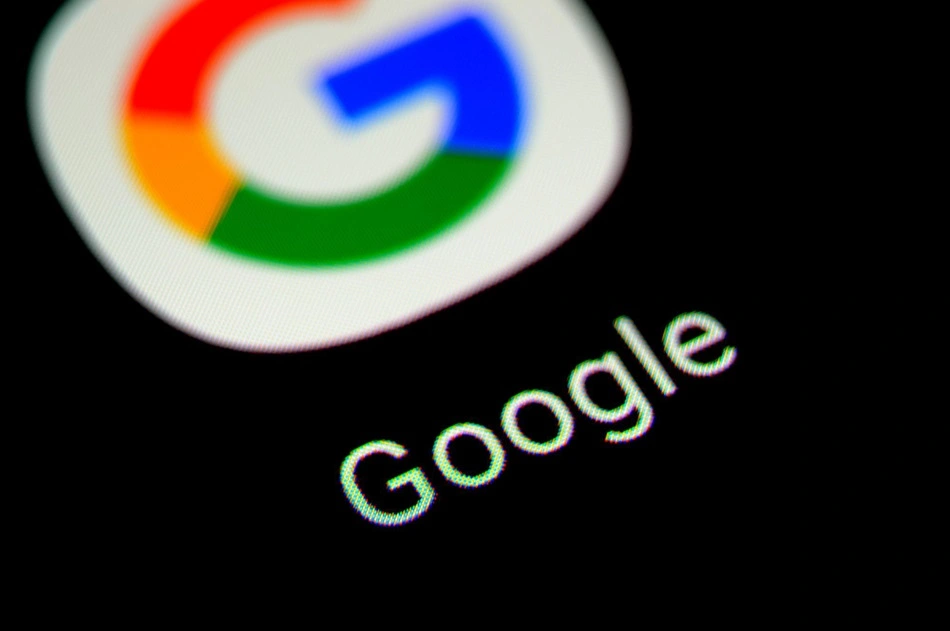
The hope is to provide users with good information. When AI assists with clarity, organisation, and relevance, it amplifies EEAT even more. When it displaces subject matter expertise or misleads users, it breaks trust.
The future is human-led, AI-supported.
The most intelligent content strategies will be those that blend human innovation with AI optimization. This synergy speeds up creation and publishing more content without compromising quality. Personalize experiences with predictive analytics. Marketers need to focus on strategy, storytelling, and connection. Content marketing isn’t a man-versus-machine decision. It’s about combining both to get better results.
Getting Started: Your Next Steps
The AI content marketing revolution isn’t happening in the future, it’s happening now. The question isn’t whether you should use AI, it’s how fast you can use it well.
Start small: Choose any one of the AI tools and one content type to start with.
Learn continuously: Stay up to date and relevant with AI developments and best practices.
Experiment boldly: Try new AI features and approaches regularly.
Measure everything: Track results to optimise your AI strategy.
Think strategically: Use AI to free up time for high-level creative and strategic work
The marketers who use AI now will have a big advantage in the next few months and years. Those who wait will be playing catch-up in an AI world.
Conclusion
AI in content marketing isn’t about replacing human creativity; instead, it’s about enhancing it. The most successful content marketers of 2025 will be those who master the art of human-AI collaboration, using technology to amplify their unique insights and creative vision.
In a world desperate for authentic connection, humanity is the real competitive advantage.
Want to up-level your content strategy with clever AI integration? Join Entri’s Digital Marketing today and find out how you can flourish in the human+AI era.
Frequently Asked Questions
Is AI replacing human content creators?
No. AI is designed to support and streamline the content process, not replace the human creativity, strategy, or emotional intelligence behind great content.
How can AI help content marketers?
AI assists with keyword research, content ideation, performance analytics, and even first-draft generation, allowing marketers to focus on storytelling and engagement.
Does Google penalise AI-generated content?
Google doesn’t penalise content just because it’s AI-generated. It only flags low-quality, spam-like content that offers no value to readers.
What’s the biggest benefit of using AI in content marketing?
The primary benefit is efficiency — AI reduces manual workload and surfaces data insights, enabling faster and smarter content production.
Can AI tools write blog posts on their own?
They can write drafts, but the quality and emotional nuance often fall short. Human editing and refinement are essential for authenticity and trust.
Which AI tools are best for content marketers?
Top tools include SurferSEO, Jasper, ChatGPT, Grammarly, and MarketMuse, each offering unique capabilities for research, writing, and optimisation.
How do I balance AI support with brand voice?
Use AI for structure and speed, but always personalise tone, add examples, and ensure your brand personality shines through in the final copy.
What content tasks should be handled only by humans?
Strategy development, brand storytelling, user empathy, interviews, and emotional narratives require human insight and real-world experience.
Is using AI in content marketing ethical?
Yes, as long as it’s transparent, adds value to the audience, and doesn’t misrepresent facts or human authorship, AI use is entirely ethical.


